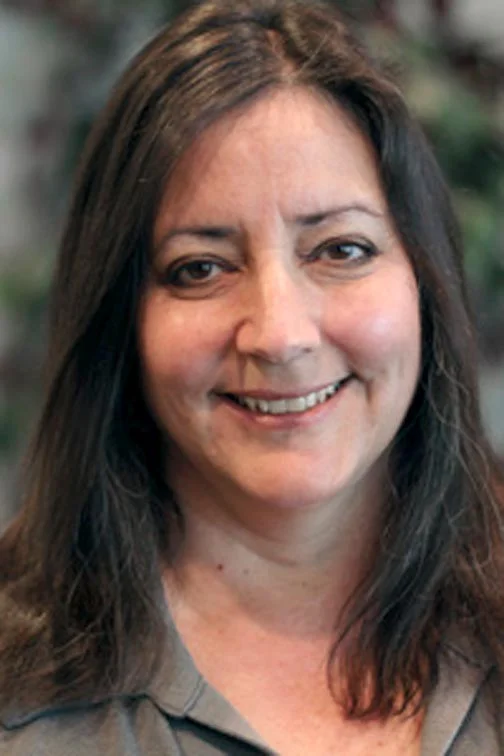Question: Our only daughter, Lynnette, now lives on the East Coast where she has a great job. She doesn’t want to come home for the holidays because of COVID. Since she’s not coming home, we’ve decided to travel to the Holy Land where we’ve always wanted to visit. We’ve made our travel plans, are up-to-date on vaccinations and excited about our upcoming trip. Lynnette is totally against this and is insisting we cancel our travel plans.
We have no intention and feel safe about taking all precautions necessary. This is the first major argument we’ve ever had with Lynnette. Is there any way we can put her mind at ease and calm her fears? ~ Mom & Pop
Dear Mom & Pop,
What a fantastic way to spend the holidays! I can only imagine the sights, sounds and sensations that you’ll encounter being in the Holy Land during Christmas. And you can check off one item on your bucket list.
There are so many differing opinions about this very topic. Some are pro-vaccine, while others are not. Some feel safety precautions, when responsibly applied, are enough to travel securely while others are adamant about limiting activities to a minimum. You’ll probably hear both supportive and antagonistic viewpoints on just about any related topic.
While I appreciate your daughter’s concerns, I support your choice and ability to make rational decisions about your lives. Of course, we don’t want to worry our children unnecessarily but the fact remains that we were managing our lives long before they were even on our radar.
From a faith perspective, I believe that if the Lord has placed this journey on your hearts for this time and season, I’ll have to trust that He has orchestrated protective measures to keep you safe and healthy, provided you do your part. After all, He’s promised to: *take care of all our needs. “And with all his abundant wealth through Christ Jesus, my God will supply all your needs.” Philippians 4:19 (GNT)
*Plan for our future. “‘For I know the plans and thoughts that I have for you,’ says the Lord, ‘plans for peace and well-being and not for disaster, to give you a future and a hope.’” Jeremiah 29:11 (GNT)
*Care for us in the latter years. “Even when you’re old, I’ll take care of you. Even when your hair turns gray, I’ll support you. I made you and will continue to care for you. I’ll support you and save you.” Isaiah 46:4 (GW)
There are so many more promises in Scripture!
You may offer your daughter insight into your faith in the promises of God. Maybe continue to assure her, noting that you are not entering into this trip lightly or without considering the safety issues. Perhaps share your plans and strategies with her regarding your health measures.
It’s tough to be at odds with our children and this, being your first encounter, [is] all the more important to establish your ability to care for yourselves. Finally, remind her how much you love and care for her, asking for her support and prayers for traveling mercies.
Please have a wonderful trip, and be sure to give Lynnette periodic updates and lots of pictures!
Be well & be blessed!

Lucinda Guarino
lucindaguarino1@gmail.com
Dear Mom and Pop,
I am sorry to hear about the argument that you had with Lynette about your upcoming trip. Your concern about putting her mind at ease, and her insisting that you cancel the trip, are both expressions of the love that you have for one another. There are times when love does not manifest in the best way possible, and this is especially true when there is fear involved.
It seems that Lynette is fearful about what could happen to you, and that is justifiable because she is your only daughter. It also seems that her own experience with COVID is enhancing her fear as manifested by the fact that she herself is not willing to travel. As you may have experienced with friends and family, all of us have had a different experience with this pandemic. Some of us are moving forward reassured by being boosted and still continuing to be careful while others are still very fearful about their lives and the lives of those they love. It seems that you and Lynette are at both ends of this spectrum.
I have parent figures who recently told me, after sharing that they had gone out for a nice dinner, “We have been careful all along and we will continue to be careful. We are boosted and we can’t stop living our lives.” I did not ask them for any explanation and I assume they needed to tell me what they told me to reassure me that that they are fine, and that they are being careful. That does not make me less concerned about their risk but it makes me understand how they feel, and gives me peace of mind.
I am not sure that there are words that you can tell Lynette that will put her mind at ease, and I invite you – if you haven’t [already] done so – to openly ask her what she is fearful about (even when you know the answer). If she is able to articulate her fear then you can acknowledge it and let her know that you understand her. You can share with her how much you love your lives to the point that you don’t want to risk them, especially because you would like to continue enjoying your wonderful times with her. Then, like my parental figures did, you can reassure her that you will be taking every precaution possible during this trip and that you will do it out of your love for your own lives and your love for her.
It is obvious that there is love in your family and at this time that love is clouded by fear. I invite you to be instruments of the understanding and reassuring love, and hopefully that will give Lynette some peace of mind.
Enjoy your trip, be super careful, and may the God who created you out of love protect you.

Rev. Antonio Gallardo
agallardo@stlukeslacrescenta.org
Question: My wife and I have been neighbors with a man (I’ll call Paul) for 40 years. We both bought our houses at the same time and became good friends. We attended the same church and our kids were friends as well.
Three years ago, Paul’s wife passed away from cancer. Now Paul won’t go to church, even though his adult children have urged him to on several occasions. Paul’s reasoning is he’s mad at God for letting his wife die. She was the love of his life.
Even though we think we understand his grief and feelings, we believe going back to church will help him. Please give us some ideas on how to talk to him. ~ Sympathetic Neighbors
Dear Sympathetic Neighbors,
It’s wonderful that your neighbor has such caring friends such as yourselves. It’s only natural that when we see our friends going through sadness we want to help them move through it quickly and get on with life. A church community can be a wonderful way to find meaning and belonging and thereby help us get beyond a sense of loss and hopelessness that we are facing; but remember, supporting a friend means loving them exactly as they are, not as we want them to be. We may think we know what is the best for them but they may need to go through the phases of grief that they are experiencing in order to grow into a sense of peace about losing their loved one. If you have ever seen a butterfly struggling in a chrysalis, you know that the struggle helps them build the strength necessary to get to their next realization.
In the book, “On Death and Dying,” Elizabeth Kubler Ross defines the five stages of grief – denial, anger, bargaining (guilt) depression and acceptance. In it she explains that there is no time limit to the grieving process and that each person deals with the various stages of grief in their own way. You might suggest this book to your friend to give him insight into what he is experiencing and to know that he is not alone in his feelings. Anger is not only a normal reaction, but also a part of the healing process. His argument with God is a personal one and growing beyond his anger is one that he alone will have to come to terms with. The love and support of his friends and church community will be helpful but a relationship with God is an inside job. No one can find God for us.
In Religious Science, the formula for moving beyond a problem is to detach from the issue – take your mind off the problem and put your mind on God, knowing that your faith will bring you out of any darkness you are experiencing. Our thoughts create an energetic vibration that brings to us experiences at the level of our thinking energy. That does not mean don’t feel what you’re feeling, but don’t dwell on it. There is a spirit that resides in each of us, the knower, which provides a spiritual solution to every problem. When we center ourselves in both thought and feeling to realize the divine presence within we will find peace.
Let your friend know of your loving support and be available to listen to him exactly where he is. Remind him that it is important to remember our loved ones who have died with more love than pain. Let him know that when he leans into the divine presence within, despite the anger, sadness and turmoil he is experiencing, the God he is wrestling with will bring him peace the moment he seeks it.
In Light,

Rev. Mary Morgan
mormari@aol.com
Dear Sympathetic Neighbors,
Paul is fortunate to have a neighbor like you. God clearly brought you together certainly for such a time as this. People get mad at God all the time. God understands this. He thinks the heartaches we suffer in this life are real and difficult. Since you’ve asked for some ideas, let me give you several: 1) Invite your old friend over regularly. Have dinner. Show God’s love to him. God has not left him alone. He sent you! 2) Connect Paul with other widowers at the church. They can play golf or cards or have regular lunches together. There are lots of men who are going through what Paul is going through. 3) Losing a life-long spouse is so very hard; often professional help is in order. There is nothing in the world like a skillful Christian grief counselor. Encourage Paul to make an appointment today! Do some homework and supply Paul with some names and numbers. 4) It might be wise to have a conversation with Paul and ask him if staying away from church is what his wife would have wanted. I suspect we all know the answer to that. 5) We recall on Good Friday the death of a famous Son. God also knows what it’s like to lose a loved one. But God knew that his grief would be temporary because Jesus would be raised from the dead. This is at the core of what church is all about. Doesn’t Paul share the same resurrection hope for his wife? In the prayer of Jesus before his crucifixion in John chapter 17, He says something no one ever talks about. He says He wants those who are His to be with Him where he is, that they might see His glory. Paul’s wife was with him for a long time. Now, for a while, Paul and his wife are separated but Paul’s wife is seeing the glory of Jesus in paradise. How wrong is it that Jesus should now enjoy the sweet fellowship that He has been waiting for, for so long? Paul and his wife will be reunited soon enough. For now, could Paul share his wife with Jesus in paradise for a while?
God’s view on the death of his believers is different from ours. We find in Psalm 116 a wake up call on the subject of death: “Precious in the sight of the LORD is the death of his saints.” Life in this world is not all about us. It’s about God and his glory. And that’s what Paul’s wife now enjoys, the glory of God.

pastorjon@lightonthecorner.org
Rev. Jon T. Karni
pastorjon@lightonthecorner.org
